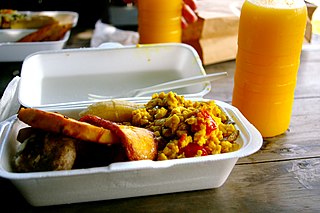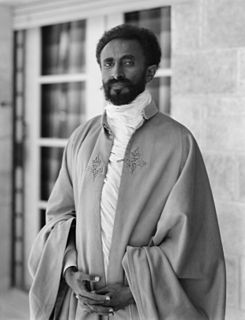Related Research Articles

The codex ) was the historical ancestor of the modern book. Instead of being composed of sheets of paper, it used sheets of vellum, papyrus, or other materials. The term codex is often used for ancient manuscript books, with handwritten contents. A codex, much like the modern book, is bound by stacking the pages and securing one set of edges in a form analogous to modern bookbinding by a variety of methods over the centuries. Modern books are divided into paperback or softback and those bound with stiff boards, called hardbacks. Elaborate historical bindings are called treasure bindings. At least in the Western world, the main alternative to the paged codex format for a long document was the continuous scroll, which was the dominant form of document in the ancient world. Some codices are continuously folded like a concertina, in particular the Maya codices and Aztec codices, which are actually long sheets of paper or animal skin folded into pages.

Parchment is a writing material made from specially prepared untanned skins of animals—primarily sheep, calves, and goats. It has been used as a writing medium for over two millennia. Vellum is a finer quality parchment made from the skins of young animals such as lambs and young calves.

Reggae is a music genre that originated in Jamaica in the late 1960s. The term also denotes the modern popular music of Jamaica and its diaspora. A 1968 single by Toots and the Maytals, "Do the Reggay" was the first popular song to use the word "reggae", effectively naming the genre and introducing it to a global audience. While sometimes used in a broad sense to refer to most types of popular Jamaican dance music, the term reggae more properly denotes a particular music style that was strongly influenced by traditional mento as well as American jazz and rhythm and blues, and evolved out of the earlier genres ska and rocksteady. Reggae usually relates news, social gossip, and political commentary. It is instantly recognizable from the counterpoint between the bass and drum downbeat and the offbeat rhythm section. The immediate origins of reggae were in ska and rocksteady; from the latter, reggae took over the use of the bass as a percussion instrument.

Rastafari, also known as the Rastafari movement or Rastafarianism, is a religion that developed in Jamaica during the 1930s. It is classified as both a new religious movement and a social movement by scholars of religion. There is no central authority in control of the movement and much diversity exists among practitioners, who are known as Rastafari, Rastafarians, or Rastas.
Black supremacy or black supremacism is a racial supremacist belief which maintains that black people are superior to people of other races. Early sources for these beliefs include Royal Parchment Scroll of Black Supremacy (1920s), Holy Piby (1920s), and The Promised Key (1935), which reworks material from the earlier two sources. In the 1960s, Martin Luther King Jr. said that a doctrine of black supremacy was as dangerous as white supremacy.

Ital, also spelled I-tal, is food often celebrated by those in the Rastafari movement. It is compulsory in the Bobo Ashanti and Nyabinghi mansions, though not in the Twelve Tribes of Israel. The word derives from the English word "vital", with the initial "v" removed. This emphasis on the letter "I" is done to many words in the Rastafari vocabulary to signify the unity of the speaker with all of nature. The expression of Ital eating varies widely from Rasta to Rasta, and there are few universal rules of Ital living.
Roots reggae is a subgenre of reggae that deals with the everyday lives and aspirations of Africans and those in the African Diaspora, including the spiritual side of Rastafari, black liberation, revolution and the honoring of God, called Jah by Rastafarians. It is identified with the life of the ghetto sufferer, and the rural poor. Lyrical themes include spirituality and religion, struggles by artists, poverty, black pride, social issues, resistance to fascism, capitalism, corrupt government and racial oppression. A spiritual repatriation to Africa is a common theme in roots reggae.
Jamaican culture consists of the religion, norms, values, and lifestyle that define the people of Jamaica. The culture is mixed, with an ethnically diverse society, stemming from a history of inhabitants beginning with the original inhabitants of Jamaica [the tainos] The Spaniards originally brought slavery to Jamaica. Then they were overthrown by the English. Jamaica later gained emancipation on 1 August 1838, and independence from the British on 6 August 1962. Black slaves became the dominant cultural force as they suffered and resisted the harsh conditions of forced labour. After the abolition of slavery, Chinese and Indian migrants were transported to the island as indentured workers, bringing with them ideas from their country.
The Holy Piby also known as the Black Man's Bible, is a text written by an Anguillan, Robert Athlyi Rogers, for the use of an Afrocentric religion in the West Indies founded by Rogers in the 1920s, known as the Afro-Athlican Constructive Gaathly. The theology outlined in this work saw Ethiopians as the chosen people of God. The church preached self-reliance and self-determination for Africans, using the Piby as its guiding document.

A Sefer Torah or Torah scroll is a handwritten copy of the Torah, meaning the five books of Moses. The Torah scroll is mainly used in the ritual of Torah reading during Jewish prayers. At other times, it is stored in the holiest spot within a synagogue, the Torah ark, which is usually an ornate curtained-off cabinet or section of the synagogue built along the wall that most closely faces Jerusalem, the direction Jews face when praying.
Leonard Percival Howell, also known as The Gong or G.G. Maragh, was a Jamaican religious figure. According to his biographer Hélène Lee, Howell was born into an Anglican family. He was one of the first preachers of the Rastafari movement, and is known by many as The First Rasta.

Iyaric, also called Dread Talk, is a dialect of English consciously created by members of the Rastafari movement. African languages were lost among Africans when they were taken into captivity as part of the slave trade, and adherents of Rastafari teachings believe that English is an imposed colonial language. Their remedy for this situation has been the creation of a modified vocabulary and dialect, reflecting a desire to take language forward and to confront what they see as the confusion of a corrupt and decadent society they call "Babylon". This is accomplished by avoiding sounds and words with negative connotations, such as "back", and changing them to positive ones. Iyaric sometimes also plays a liturgical role among Rastas, in addition to Amharic and Ge'ez.
The Promised Key, sometimes known as The Promise Key, is a 1935 Rastafari movement tract by Jamaican preacher Leonard Howell, written under Howell's Hindu pen name G. G. Maragh.

Mansions of Rastafari is an umbrella term for the various groups of the Rastafari movement. Such groups include the Bobo Ashanti, the Niyabinghi, the Twelve Tribes of Israel, and several smaller groups, including African Unity, Covenant Rastafari, Messianic Dreads and the Selassian Church. The term is taken from the Biblical verse in John 14:2, "In my Father's house are many mansions."
Allan Hope, better known as Mutabaruka, is a Jamaican Rastafari dub poet, musician, actor, educator, and talk-show host, who developed two of Jamaica's most popular radio programmes, The Cutting Edge and Steppin' Razor. His name comes from the Rwandan language and translates as "one who is always victorious". His themes include politics, culture, Black liberation, social oppression, discrimination, poverty, racism, sexism, and religion.
The Rastafari Movement in the United States is the Rastafari Movement, founded in Jamaica, manifestation in the United States.
Reverend Fitz Balintine Pettersburg was a proto-Rastafari preacher, and author of the Royal Parchment Scroll of Black Supremacy, published in 1926. He influenced Leonard Howell, who according to author Barry Chevannes, plagiarised the Royal Parchment Scroll in his 1935 book The Promise Key.
Nyabinghi, also Nyahbinghi, Niyabinghi, Niyahbinghi, is the gathering of Rastafari people to celebrate and commemorate key dates significant to Rastafari throughout the year. It is essentially an opportunity for the Rastafari to congregate and engage in praise and worship. For example, on July 23rd of each year, a Nyabinghi is held to celebrate the birth of Emperor Haille Selassie I. During a Nyabinghi celebration men and women have different roles and expectations. Men are expected to remove any hair coverings, whilst women must keep their hair covered. A group of men typically organise themselves in a line or semi-circle and are assigned to beat the drums throughout. The remaining congregation continue to sing well known songs or 'chants', some of which are Hebraic scriptural verses that evidence the divinity of Haile Sellassie. For example, 'I have a little light in I and I'm going to make it shine, Rastafariiii, shine' and 'Holy Mount Zion is a holy place and no sinners can enter there, so let the words of my mouth and the mediation of my heart, be acceptable in thy sight, of Rastafari'. Nyabinghi is a Rastafari tradition that promotes Rastafari unity, strengthens the Rastafari spirit with fellowship and raises the conciousnes and presence of Rastafafari in the heart of those in attendance. At some points passages of the bible are read. Rastafari recognise the significance of Jesus Christ, due to Haile Sellassie I fulfilling the teachings and prophecy of scripture.

Cannabis in Jamaica is illegal, but possession of small amounts was reduced to a petty offence in 2015. Cannabis is locally known as ganja, and internationally cannabis consumption plays a prominent role in the nation's public image, being tied to cultural touchstones such as Rastafari and reggae music.
Rastafari developed out of the legacy of the Atlantic slave trade, in which over ten million Africans were enslaved and transported to the Americas between the 16th and 19th centuries. Here, they were sold to European planters and forced to work on the plantations. Around a third of these transported Africans were relocated in the Caribbean, with under 700,000 being settled in Jamaica. In 1834, slavery in Jamaica was abolished after the British government passed the Slavery Abolition Act 1833. Racial prejudice nevertheless remained prevalent across Jamaican society. The overwhelming majority of Jamaica's legislative council was white throughout the 19th century, and those of African descent were treated as second-class citizens.
References
- ↑ Charles Price (2009). Becoming Rasta: Origins of Rastafari Identity in Jamaica. NYU Press. pp. 48–49. ISBN 978-0-8147-6768-9.
